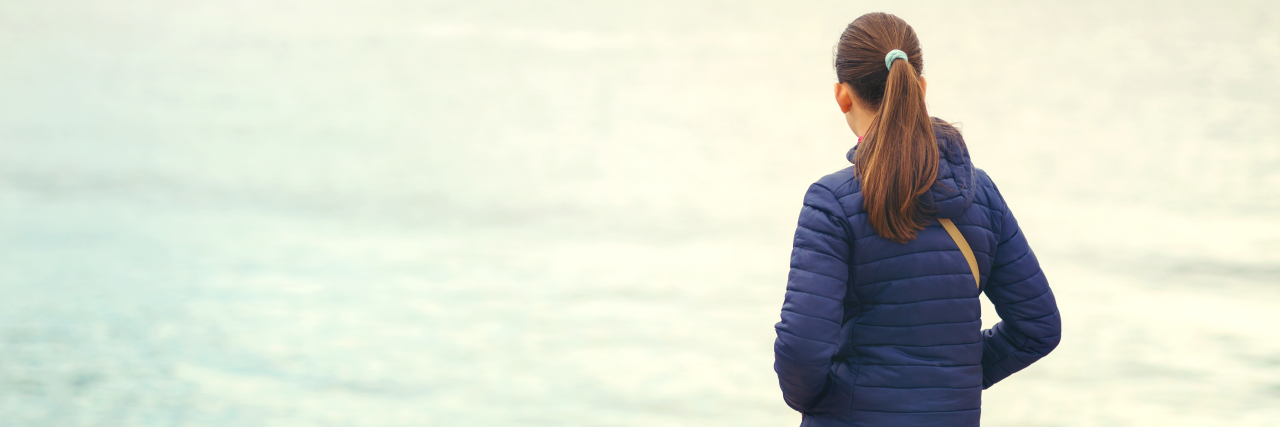Why These Two Words Now Shape My Life With Achalasia Disorder
I never expected these two words would ever describe my life, and now they have become a massive part of it in the last 11 months – “rare” and “incurable.”
I was diagnosed with Achalasia disorder in November 2017, after six weeks of not being able to swallow solids or liquids. I was dismissed by doctors for weeks, as I continued to lose weight everyday and become dehydrated drastically. It wasn’t until I lost three stone in six weeks that doctors finally took me seriously. It hurt to eat. My body was rejecting food and regurgitating it seconds after swallowing. Once in hospital, I had X-rays and cameras to take a look down my esophagus. This finally gave answer: Achalasia disorder.
Achalasia is a rare, incurable and progressive autoimmune esophageal motility disease. There are only palliative treatments for Achalasia. Approximately 1 in 100,00 people are diagnosed with Achalasia annually. “Achalasia warriors,” as I like to call them, have damage to the nerves of the esophagus which makes swallowing and the passing of food and liquids into the stomach extremely difficult and painful. I had a first dilation, which allowed me to eat for a week. Shortly after I needed a second dilation, and it failed instantly.
The Christmas dinner I attempted to eat was regurgitated seconds after swallowing, and due to the lack of energy my body had, I spent New Year’s Eve asleep. I was desperate for help. I needed to be fixed.
In January, I was scheduled to have the Heller myotomy surgery. This is a keyhole procedure which consists of dividing the muscles of the esophagus and stomach carefully to avoid cutting the inner lining. The top of the stomach is then wrapped behind the esophagus and sewn to the edges of the myotomy to keep it open, and also to prevent acid reflux.
The surgery took three hours, and afterwards I still wasn’t allowed to swallow liquids until the next day. Although I was in so much pain and discomfort due to the surgery, the water traveling down my esophagus and into my stomach made up for it. I was able to go home three days later on a strict liquid diet for three weeks, and then a puréed diet for another three weeks. Recovery was difficult. I couldn’t dance or exercise for six to eight weeks, which was difficult for me as I do performing arts in college.
However, after the long road to recovery, I was myself again. It has now been 11 months since surgery and one hell of a journey. I have educated myself on this disorder and realized that my swallowing will never be normal. I have learned to deal with the effects of having Achalasia disorder, which include the spasms, the acid reflux and the endless list of foods I can no longer eat.
The doctors help you understand the disorder you are diagnosed with, but they don’t explain how difficult it is living with a rare, incurable disorder at such a young age. It has changed my life completely. I have days where the pain drags me down to the point where I cancel plans or miss college. It’s emotionally and physically draining battling a disorder which takes up so much of your daily routine. Eating breakfast is a 50/50 chance of having a good day or a bad day. Being young, rare and incurable makes life so much harder.
I constantly come across ignorant people who choose not to learn about my disorder, and label it as “fake.” “Get better soon” is hard to hear, since I know they are just trying to be caring, but in reality I won’t get better soon. I’m sick of hearing, “So you’re OK now right?” No, I’m not. Yes, I may have had surgery to allow myself to eat again, but I struggle everyday. Sometimes the struggle is finding something to eat in college that I can tolerate, or having a spasm away from home and wanting nothing more than my bed.
At this time last year, I wasn’t picturing myself tackling all these obstacles at the age of 18. Yet, I have achieved so much, from raising over £500 for the Achalasia Awareness Organization (AAO), to getting the achalasia ribbon tattoo on my wrist. Although this disorder is both physically and mentally difficult, it has changed me as a person. For everyone out there fighting for a cure, especially at such a young age, remember — we don’t know what the future will hold, but we do have hope.
We want to hear your story. Become a Mighty contributor here.
Getty Images photo via Jovanmandic

